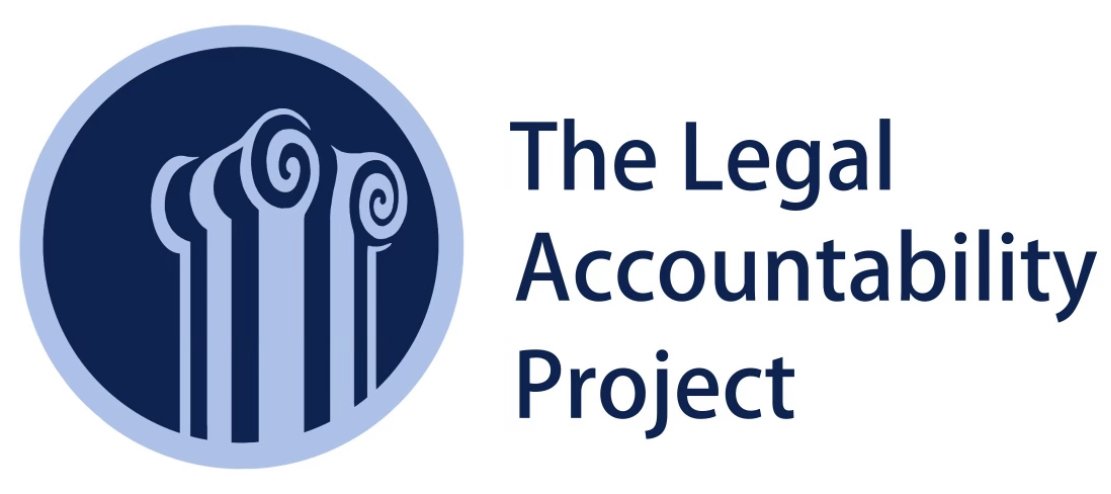LAP Announces Year 1 Clerkships Database Users By Law School and Encourages More Schools to Participate
Wednesday, July 24, 2024
For Immediate Release
Contact: Aliza Shatzman, 267-481-2095, aliza.shatzman@legalaccountabilityproject.org
The Legal Accountability Project Announces Year 1 Clerkships Database Users By Law School and Encourages More Schools to Participate
Just over two years ago, The Legal Accountability Project (LAP) committed to an audacious goal: launching a first-in-the-nation Centralized Clerkships Database to democratize judicial clerkship information, thereby ensuring law students - regardless of their law school’s ranking, resources, and clerkship advising - could access baseline information about clerking, including judges’ managerial styles, chambers culture, work environments, work/life balance, and workplace conduct.
LAP initially conceptualized the Clerkships Database as a law school subscription model, whereby law schools would pay a small fee of $5 per student per year, based on total JD enrollment, to give access to all their students and recent graduates. However, due to prevailing market forces and a desire to provide access to as many students as possible this year, LAP launched the Clerkships Database in spring 2024 as a primarily individual subscribers option, for $20 per user for this clerkship hiring cycle.
LAP was truly overwhelmed by the student and recent graduate interest in the Clerkships Database. In this first cycle, we onboarded more than 1,000 law students and recent graduates from nearly every U.S. law school, from the most well-resourced to the least, who sought out this information themselves and paid to access it.
“This is the best $20 you’ll ever spend,” one user noted. Many have described the Database as an “incredible” and “amazing” resource. Student users and law clerks who’ve submitted surveys regularly reach out to thank us. They are grateful to finally have an anonymous, verified, third-party platform where clerks can share candidly, and students can access unbiased information with the confidence that LAP has no misaligned incentives that might preclude candid, robust information-sharing.
This week, LAP shared the number of Clerkships Database users by law school, noting our top 15 law schools by user base. LAP’s Database has something for everyone, whether you use it to supplement or supplant your school’s existing resources.
Here are the top 15 law schools by Clerkships Database use, noting the number of student/recent graduate users:
Harvard (161)
Columbia (102)
Yale (93)
Georgetown (92)
NYU (76)
Michigan (76)
Berkeley (59)
Stanford (47)
Penn (45)
Maryland (40)
Virginia (37)
George Washington (36)
Texas (35)
Chicago (35)
Duke (34)
LAP appreciates that some law schools have shared information about LAP’s Database and encouraged students to subscribe individually. Some even list LAP’s Database as a clerkship resource on their websites.
However, to date, none of these schools have subscribed on behalf of some or all of their students, although two Law Reviews subscribed on behalf of their 2L e-boards.
We encourage all law schools to subscribe, for several reasons:
As the recent Ninth Circuit scandal involving former Alaska federal judge Joshua Kindred highlights, no law school knows about all the judges students will apply to, especially as new judges are appointed or elected each year. Existing law school clerkship advising relies on: where law clerk alumni have clerked in the past, alumni networks, and clerks’ willingness to share information (which has historically been one-sided). This is an imperfect, inefficient system, whereby information is siloed and shared selectively, especially if it is negative.
Law schools paying to subscribe ensures there are no equity or access issues, whereby clerkship information is restricted to the wealthy and well-connected. While LAP will continue to offer need-based scholarships to defray the Clerkships Database cost for some students, this summer, we have directed students to first reach out to their Career Services offices to inquire about covering the cost for them. We want schools to understand the robust student demand for this service and the inequities they help perpetuate by not making access widely available by subscribing on students’ behalf.
And, at a time when the federal judiciary is at a crisis point, and reform is urgently necessary to ensure transparency, diversity and equity, and accountability, the legal profession looks to established entities like law schools to signal a commitment to reform. Law schools should work with us and lead the charge on these issues.
LAP offers law schools a common-sense, achievable solution to historically intractable social problems. We urge more law schools to work with us during the 2024-2025 school year to improve the clerkship system and ensure safe, supportive work environments for all their students and alumni.

